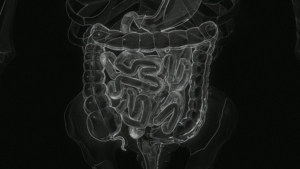
AMR – the silent pandemic that can still be contained
The COVID-19 pandemic is having a devastating effect on global health and an unprecedented impact on the economy. As the world struggles with the challenges brought on by this pandemic, the threat of the next one is already looming in the form of AMR.
AMR is already responsible for an estimated 750,000 deaths worldwide on an annual basis and is predicted to cause 10 million deaths by 2050.
Many of the reports that analysed the AMR crisis gave policy guidance on how to prevent AMR from becoming a global phenomenon. One pillar in this guidance was to increase grant funding (Push) for SMEs. This Push funding has resulted in a solid early-stage pipeline of novel approaches combatting AMR. The newest addition to the Push funding is the US$ 1bn AMR Action Fund that was created by over 20 of the largest pharma companies.
The successes of the Push funding notwithstanding, the fundamental problem of the broken economics of the global market for antibiotics remains. If this is not resolved, the billions invested in Push funding will go to waste as none of these innovative drugs will ever reach patients.
Rightly so, valuable life-saving antibiotics are reserved for last resort purposes. However, pricing and reimbursement policies are still configured globally as if novel antibiotics would still be high volume products. This deliberate misalignment between years of R&D involving billions of investments and commercial non-viability is what prevents newly approved antibiotics from reaching patients in dire need.
This is evidenced by four of the most recently FDA-approved antibiotics consciously not being commercialised in Europe as they will never be profitable. This deprives European citizens of the newest life-saving antibiotics. The global lack of urgent political will to address this is scandalous. The UK and Sweden are two positive exceptions testing novel reimbursement mechanisms.
A recent Call to Action that was published by the BEAM Alliance, supported by a
global alliance of stakeholders in AMR, calls for immediate action by the European Commission, Parliament and member states to implement a new Pull incentive framework as part of the upcoming EU Pharmaceutical Strategy.
The underlying effort that is needed by the G20 countries and in particular by the EU is to create a marketplace that ensures a collective global Pull incentive over a time period of 10 years of $3-4 billion for a novel antibiotic that saves lives and addresses a high unmet medical need caused by resistant infections. This is a small price to pay compared to the predictions highlighting an economic burden of $100 trillion globally by 2050.
Marc Gitzinger is Chief Executive Officer and co-founder of BioVersys. He has over 10 years of experience in the biotech industry, having launched a university spin-off in the field of antimicrobial resistance and growing it into a multi-asset early clinical stage company. He is also vice-president of the board of the BEAM Alliance, a European association representing over 70 European and international SMEs active in antimicrobial research and development.
This intro was published in the European Biotechnology Magazine Autumn Edition 2020.



 Unsplash+
Unsplash+